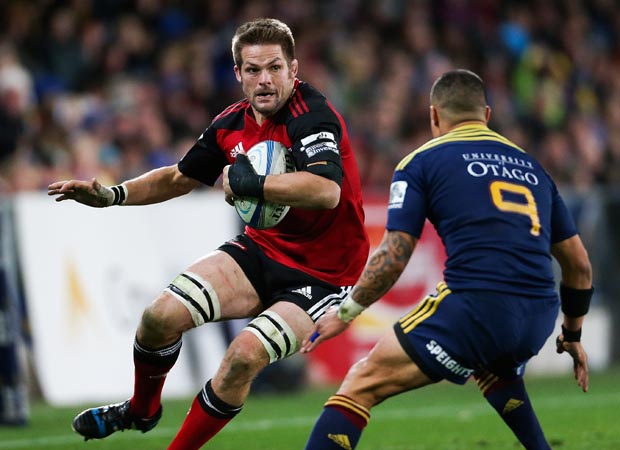
 It is difficult to agree with the view taken by one or two New Zealand commentators that the Super 15 final between the Waratahs and the Crusaders will have no direct bearing on the Southern Hemisphere Rugby Championship opener between Australia and New Zealand.
It is difficult to agree with the view taken by one or two New Zealand commentators that the Super 15 final between the Waratahs and the Crusaders will have no direct bearing on the Southern Hemisphere Rugby Championship opener between Australia and New Zealand.
Given the number of international players involved in both line-ups who will be playing against each other again when the Wallabies meet the All Blacks in Sydney on Saturday, it is bound to have some influence. The most obvious example is that Dan Carter, who started last weekend’s final for the Crusaders, will be absent because of the ankle injury he sustained in the first half.
Historically, New Zealand and South Africa have dominated the Super Rugby tournament, but given the number of Australia personnel in the Waratahs side, the Aussies will be more confident than usual going into this crucial first round match against the All Blacks.
Carter’s loss is not too dramatic because New Zealand have been doing pretty well without him during his sabbatical. More significant is what New Zealand do with Richie McCaw. There is a body of opinion that if McCaw was left out against the Wallabies it might be an advantage to New Zealand because of the way he was eclipsed by Michael Hooper when the Waratahs claimed their first Super title.
McCaw is getting on. He’s been an inspirational leader, but while he was off on sabbatical Kieran Read pulled on his captain’s boots, and they fitted pretty comfortably. In fact, Read was not only voted IRB Player of the Year, he led New Zealand brilliantly. Although McCaw captained New Zealand to a three-nil whitewash of England this summer it was not as emphatic as it sounds – and every other side will have gained belief that New Zealand are not as far ahead as their unbeaten record last season suggests.
My prediction is that New Zealand will be beaten this season. It could even happen this weekend because, with the backline talent at their disposal, Australia are capable of beating them.
When you saw that McCaw, Carter, Israel Dagg, Ma’a Nonu, Cory Jane, Victor Vito, Tony Woodcock and Sam Whitelock were still available after the 2011 World Cup, New Zealand looked pretty well invincible. But when I look at them now, I don’t feel that way. Much of it comes down to McCaw and Carter being so far ahead of everyone else at that time, and young talent like Dagg bursting through. Dagg was superb during the 2011 World Cup, but the full-back has fallen away since then.
New Zealand’s star performer now is Ben Smith, who is magical at times. He is the best full-back in the Southern Hemisphere, along with Australia’s Israel Folau, but the All Black coach, Steve Hansen, was not convinced immediately and against England he picked Dagg for the first Test and played Smith at 15 only after he was injured.
Julian Savea is another in-form All Black. The wing is an incredible player who is big, quick and scores tries at will.
However, elsewhere in the backline there is a sense that changes may have to be made. In the centres Conrad Smith and Nonu are veterans at the tipping point, hanging tough to stay the pace until the 2015 World Cup. The games will get harder for them now, although Smith is still steady and Nonu recovered after an ordinary first Test against England.
Then there’s fly-half. For me, Beauden Barrett is the next guy in for Carter. He’s incredibly quick in thought as well as pace. You cannot let this guy run or he will cut you to shreds – where Carter ghosted through gaps, Barrett burns through them. While respecting Aaron Cruden’s position as the next 10 in line, Barrett is ready.
Hansen must get Barrett on the pitch more regularly because he gives the New Zealand attack many more options and the opposition many more headaches. If someone like that doesn’t get the nod it shows the coaches are running the game far more than international players. If Carter doesn’t play in the Rugby Championship, I would expect Barrett to supersede Cruden to become the starting fly-half.
Colin Slade is also no slouch, so they have three very good young 10s who can all play in their sleep. The only worry for the New Zealand hierarchy is that they will be lucky to keep all three in the country until 2019. There is a global scouting fraternity out there now, and money talks.
Carter desperately wants to win a World Cup as the starting fly-half, but he, Nonu and Conrad Smith are all at the same crossroads, and it is possible that New Zealand could lose that hugely experienced midfield, or part of it, before the 2015 defence of their world champion title.
Looking ahead, New Zealand will see the autumn series as bread-and-butter, with the toughest game against England at Twickenham. For some of the autumn Tests they will rest three or four key players – whereas they will not do that in the Rugby Championship.
The real business for them is about to start because the intensity of their rivalry with South Africa and Australia is much greater than it is with the Northern Hemisphere nations, and they are the defending champions.
It is a season in which Hansen will have to juggle the age-old question of whether he should concentrate totally on winning the next game, or blood new combinations in preparation for the World Cup.
You sense that New Zealand do not have the depth that they appeared to have in 2011, and that they will be as vulnerable in the next 15 months as they have been at any stage in the last decade.
It is very rare that you see New Zealand cornered, and, so far, when they have been – as they were against Ireland last autumn – they have risen to the challenge. They will have to do so again to win this 18-Test world record game against Australia.
I love the way New Zealand play rugby, and their precision and execution has been at a higher level than any other team in international rugby for many years. But when key players get older it is hard to maintain, and, for a coach like Hansen, to keep it all fresh.
They will still be very difficult to beat. When you have locks like Brodie Retallick and Sam Whitelock, who can run for 80 minutes and do everything expected of the second row before gate-crashing the rest of the party in terms of skill set, with backdoor offloads, you are never out of the running.
This Rugby Championship will be hard-fought, but I sense it is someone else’s turn this time. The deciding games will be New Zealand in Australia, and South Africa in Australia. And my hunch, because of pack power, is that South Africa will win it.
*This article was first published in The Rugby Paper on August 10.

1 Comment
You must be logged in to post a comment Login
Leave a Reply
Cancel reply
Leave a Reply
You must be logged in to post a comment.
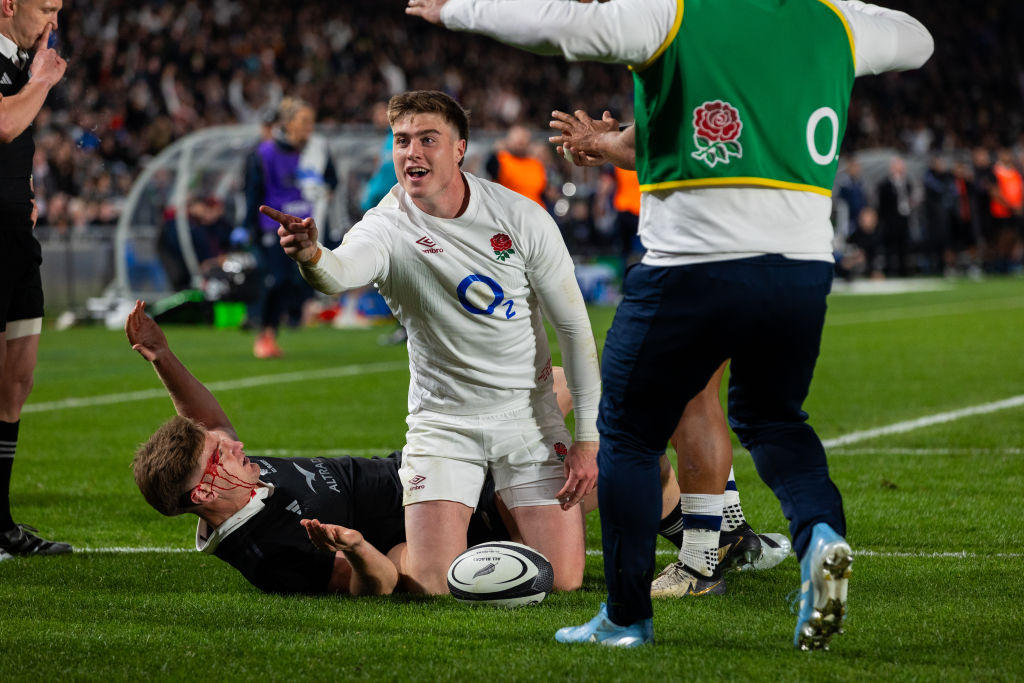
British and Irish Lions
From Leicester reject to a British and Irish Lion: Tommy Freeman’s stellar rise
Latest News
Steve Diamond: Franchise league a good idea

International Rugby
Touring Japan with Wales is my goal says Dan Edwards

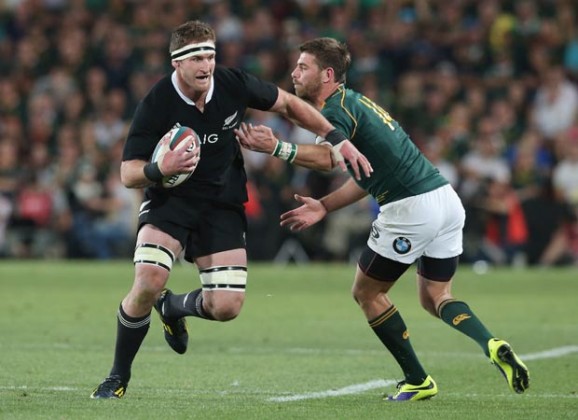
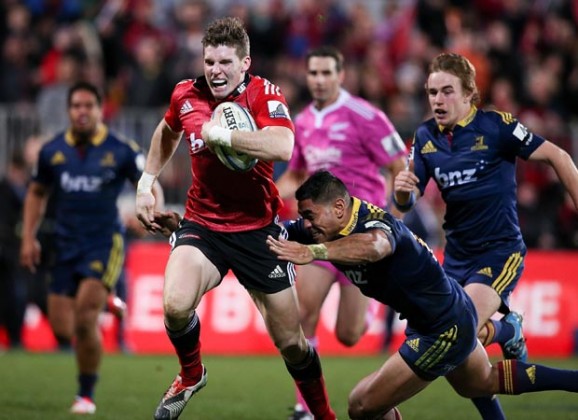

















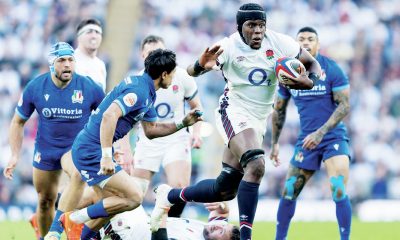





Pingback: รับทำเว็บ WordPress